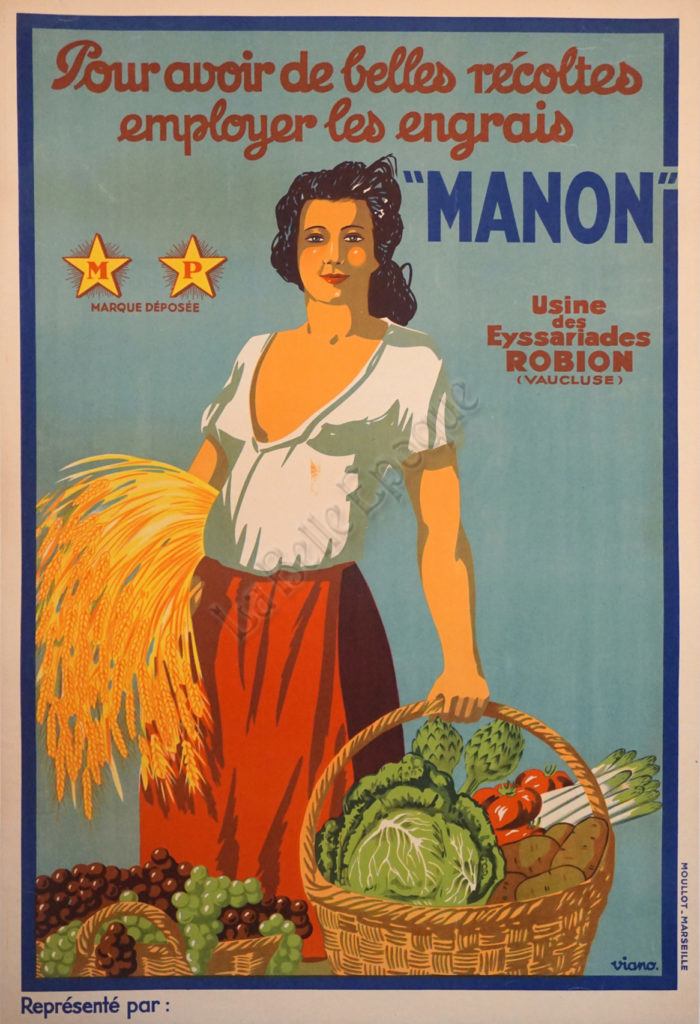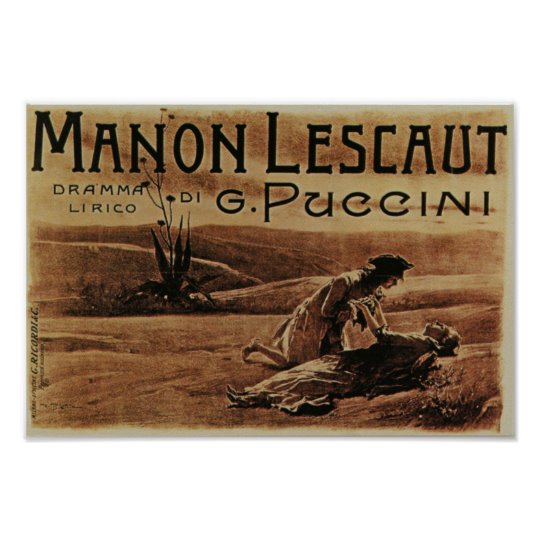OPRY LINKS
1:
All-'Manon' Edition!
“If you’re gonna get off on somethin’ you don’t need to
know nothin’ about it, music is a universal language.
If it’s opera in Italian, you ain’t supposed to know nothin’ about Italy.
You can just sit there and dig on it.”---the late, great Dr. John.


"Manon" by Massenet, and. . ."Manon Lescaut" by Puccini.
Saturdee Opry Links Overture.
The gorgeous intermezzo from Puccini's "Manon Lescaut."
https://www.youtube.com/watch?v=1cNLDkbBuw4
1.
From Puccini's third opera, the one immediately preceding the monument that
is "La Boheme," here is "Donna non vidi mai" from "Manon Lescaut." It's
short and sweet, but no less affecting for it. Such ardor! "I have never
seen a woman like this. . ." You can almost feel Puccini "warming up" for "Boheme."
Here is Placido Domingo.
Synopsis: Il Cavaliere Renato des Grieux, a student and young nobleman, is
in a square near the Paris gate, Amiens, France, 18th century. He has just
met Manon and instantly fallen in love with her. Manon leaves when called by
her brother, but promises to return. Des Grieux sings about his feelings for
Manon.
https://www.youtube.com/watch?v=dNSGecDzv4A
Translation:
http://www.aria-database.com/search.php?individualAria=531
2.
There is another "Manon" opera (actually two others), this one by Jules
Massenet---written about a decade before Puccini's. And there is a landmark
tenor aria in this "Manon," as there is in Puccini's. It is, not
surprisingly, another declaration of love for Manon---yet it is almost
dream-like, contrasted with the unrestrained lyricism of Puccini's
comparable aria. In fact, it is known as "The Dream" ("La Reve"), as it
relates a dream that Des Grieux has had of a near-perfect scene that lacks
only Manon. "En Fermant les Yeux."
Here is Jussi Bjorling.
Synopsis: The apartment of Chevalier Des Grieux, Paris, France, 18th
century. In order to cheer Manon up, Des Grieux relates to her a dream that
he has had. He has dreamed that someday he will own a house surrounded by
beautiful flowers and singing birds. However, he realizes that his dream was
still drear because it lacks one thing : Manon.
https://www.youtube.com/watch?v=p2zPUvCyiQI
Translation:
https://www.opera-arias.com/massenet/manon/en-fermant-les-yeux/
3.
That Manon was a real man-killer. Are we allowed to say that in the era of "metoo?"
Well, she was. A demimonde (beautiful French word for "loose woman"), she
drove a young student (Des Grieux) nuts with her beauty, "accidentally"
murdered her sugar daddy (Geronte), wound up sent to a penal colony in New
Orleans---with poor Des Grieux following, helplessly in love. Eventually she
dies of starvation and heartbreak in the New Orleans desert (right, there
are no deserts in New Orleans, but this is opera, folks.) At one point in
the Massenet version of the story, poor Des Grieux enters a seminary to try
to forget this femme fatale. Here is the aria from that moment, "Ah! fuyez
douce image" ("Ah! Vanish, sweet memory. . .") in an arresting rendering by
tenor Piotr Beczala. Beautiful, wrenching.
https://www.youtube.com/watch?v=l_d5ToO0pDY
Synopsis: After entering the seminary in order to forget about Manon, Des
Grieux finds that he is unable to forget his love for her. He prays to God
to remove this shadow from his heart.
Translation:
https://www.opera-arias.com/massenet/manon/ah-fuyez-douce-image/
4.
Poor Des Grieux. Such a nice fella. Captivated by crazy Manon, who can no
more resist the lure of riches than a goat can resist a can. Here the
amiable student finds Manon in the apartment she shares with her
sugar-daddy, Geronte, and convinces her to run away with him. Yet Manon
can't do it without first grabbing a few handfuls of jewels bestowed on her
by Geronte, which disgusts the noble lad. Here again is the great Domingo
singing of his outrage over Manon's greed (apologies for video quality, but
vocal makes up for it.) "Ah Manon, mi tradisce," from the Puccini version of
the opera.
https://www.youtube.com/watch?v=3UZk1JC-AoI
Translation: (search for "tradisce")
http://www.murashev.com/opera/Manon_Lescaut_libretto_Italian_English
5.
Yes, in the various "Manon" operas (by Puccini, Massenet, Auber), Manon does
sing! I know you were wondering! It's not all tenorial oratorial (what'd he
say?). In the Massenet version, there is a sentimental aria (imagine
that--sentimentality in opera!) in which flighty Manon bids farewell to a
table. What? Seems the lady has been told that Des Grieux will be kidnapped
by his father's men in order to get him away from her. (Good idea!) She
knows that the happy days they have spent in Des Grieux's apartment will
soon be over, and bids adieu to the table at which she and Des Grieux shared
many a Scrabble game---well, you know, happy times. . .Here is wonderful
Beverly Sills with "Allons! adieu, notre petite table!" With English
subtitles.
(The "adieu" portion begins at roughly 2:00.)
https://www.youtube.com/watch?v=Bg77_6RVuhM
And just for fun, here is Maria Callas with the same aria, in concert.
Piquant as hell. (Again, the "good part" begins around the two-minute mark.)
https://www.youtube.com/watch?v=EdZh8P3mk7M
6.
Daniel Auber was an astonishingly prolific author of (French) comic operas,
"Fra Diavolo" perhaps being the only title you might recognize. He also
wrote a "Manon Lescaut" around 1850, however, apparently keeping it a romp
until the ending, in which Manon, uh, dies. Bit of a letdown. It is the
least remembered and least performed of the three operas based on the 17th
century "Manon" novel, and this is the most famous aria from it. Wait,
wait---don't run away. This is fun! Well, not exactly like dropping acid in
a rainforest, but fun, nonetheless.This is Manon's solo, "C'est l'histoire
amoureuse", also known as "L'éclat de rire" or the "Laughing Song". It is
not a free-standing aria – in fact, it forms part of the act 1 finale – but
ever since its creation it has been a chosen showcase singers showing off
technique. Given the title, "That's the History of Love," it is small wonder
that laughter is involved. (No translation available.) Here is the
fabulously charming Sumi Jo, having a little fun with you. That's the story
of, that's the glory of love. . .
https://www.youtube.com/watch?v=op_y2hgwUQk
7.
Now back to our regularly scheduled Puccini "Manon." Okay, folks, I'm a
sucker. I'm posting this not because the tenor is superb, or wonderful, or
beguiling, or anything very special. I'm doing it solely because he has a
weird name, obviously designed to get attention (I know something about
this.) All that aside, this is the little aria from "Manon Lescaut" in which
Des Grieux essentially sings, "For Sale: Infatuation with Pretty Girl."
(Careful what you wish for, you're liable to end up with Manon.) I am
posting this selection, as I said, because the guy is named, I swear, Attila
Kiss B. Right. Attila Kiss B. Here is "Trav voi, belle." ("Among you,
beautiful. . .")
https://www.youtube.com/watch?v=NDuPL_9cyXs
And, just so you know how it can be sung by a better tenor:
https://www.youtube.com/watch?v=BuoJHkaaRJc
Translation:
https://www.opera-arias.com/puccini/manon-lescaut/tra-voi-belle-brune-e-bionde/
8.
You wonder if this Massenet aria gave Puccini an idea for Musetta's
character in "Boheme." Well, I do, anyhow. From the Massenet "Manon," here
is the scene where that naughty but irresistible demimonde essentially
expresses her life philosophy, which is essentially: bang your brains out
while you can, pardon my vernacular. Here is someone who probably knows a
thing or two about this, wonderful Anna Netrebko, with
"Obeissons quand leur voix appelle" ("Obey when their voices are calling")
following "Je marche sur tous les chemins" ("I go anywhere the equal of any
sovereign.") Correct, it's two, two, two arias in one! With English
subtitles!
Setting: A busy square in Paris, France, 18th century
Synopsis: Manon appears in the crowd and tells her admirers about her
philosophy to live only for the moment, caring not what happens afterwards.
After all, there is little time in youth. One should spend it loving,
singing, and dancing.
https://www.youtube.com/watch?v=rG6Y5WGEnyo
Translation:
https://www.opera-arias.com/massenet/manon/je-marche-sur-tous-les-chemins/
https://www.opera-arias.com/massenet/manon/obeissons-quand-leur-voix-appelle/
Here is a better quality video from a different performance of "Marche"
only:
https://www.youtube.com/watch?v=J5kI136uDK8
9.
The love duet from act 2 of Puccini's "Manon Lescaut" has some great
moments, and definitely seems to foreshadow the emotive power of "Boheme"
(Puccini's next opera.) Des Grieux confronts Manon about her infidelity,
which was motivated by greed. You can hear in the music the unique sort of
emotional tumult and angst felt in young love. At least I think you can. I
will let Placido Domingo and Renata Scotto take it from here.
https://www.youtube.com/watch?v=TytEDmdPdOw
Translation:
https://www.opera-arias.com/puccini/manon-lescaut/tu-tu-amore-tu/
FINAL BOW:
Our "Manon" SOL edition ends with. . .the end. Of Puccini's version, that
is. Banished to America to a labor camp, Manon escapes. She is joined by Des
Grieux, and they flee into a desert. They are at the end of their strength,
collapsing from thirst and exhaustion. Des Grieux leaves Manon, searching
for water. When he returns, he finds her dying. In her last breath she says
she loves him. Here is "Sola, perduta, abbandonata," or "Lonely, lost,
abandoned." With Placido Domingo and Dame Kiri Te Kanawa.
https://www.youtube.com/watch?v=-S4lPyJDSeA
Translation:
https://www.opera-arias.com/puccini/manon-lescaut/sola-perduta-abbandonata/
Saturdee Opry Links Encore!
"What a wonderful thing is a sunny day!" Even on a Theremin.
https://www.youtube.com/watch?v=Nfh6UuJuU-U
Translation:
https://en.wikipedia.org/wiki/%E2%80%99O_sole_mio



